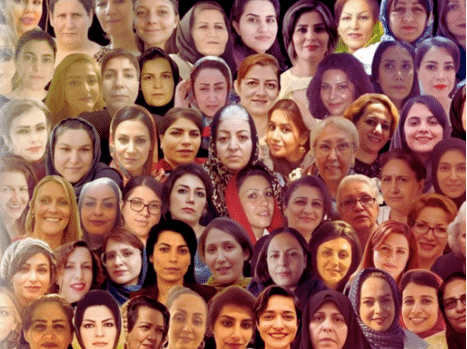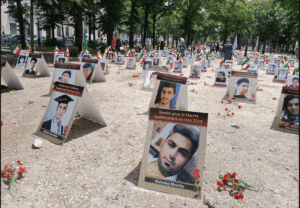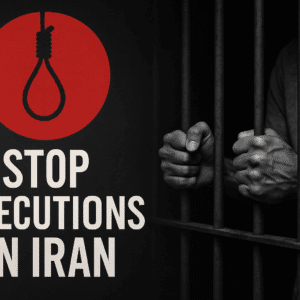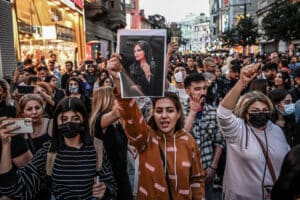Concerns over the condition of political prisoners have sharply intensified.
While international attention remains focused on global conflicts and regional tensions, the Iranian Regime has launched a silent and systematic campaign of repression against political prisoners behind closed doors. With widespread internet shutdowns, increased military presence in the streets, and maximum-security conditions imposed across the country’s prisons, reports point to a dangerous escalation that demands immediate attention.
Currently, according to credible sources, thousands of political prisoners are being held under extraordinary circumstances in Iran. Dozens of them face imminent execution. Worryingly, there are reports of suspicious transfers, cut phone lines, cancelled outdoor time, and a heavy presence of intelligence agents within prison wards. During the war situation
The rights of political prisoners under the law
Despite these laws, Iran routinely violates the rights of political prisoners—denying legal protections, using torture, and punishing peaceful dissent. Amid current military attacks, the regime has left these prisoners unprotected and at even greater risk, in clear breach of both domestic and international law.
Under international human rights law—especially the ICCPR—all detainees have rights to liberty, due process, fair trial, and freedom from torture. Political prisoners, detained for peaceful expression or beliefs, are protected under these norms.
- Article 32: No person may be arrested except according to the law.
- Article 39: All affronts to the dignity and repute of persons arrested, detained, imprisoned, or banished in accordance with the law are forbidden and liable to punishment.
- Article 23: The investigation of individuals’ beliefs is forbidden, and no one may be molested or taken to task simply for holding a certain belief.
Internet Shutdown
In recent weeks, access to the internet in many parts of Iran has been severely restricted or entirely blocked. This is not only isolating the public but is also silencing the families of prisoners, human rights defenders, and activists who rely on digital communications to report abuses.
This silence is not accidental. It is a calculated strategy by the regime to ensure that any potential crackdown remains hidden from the world.
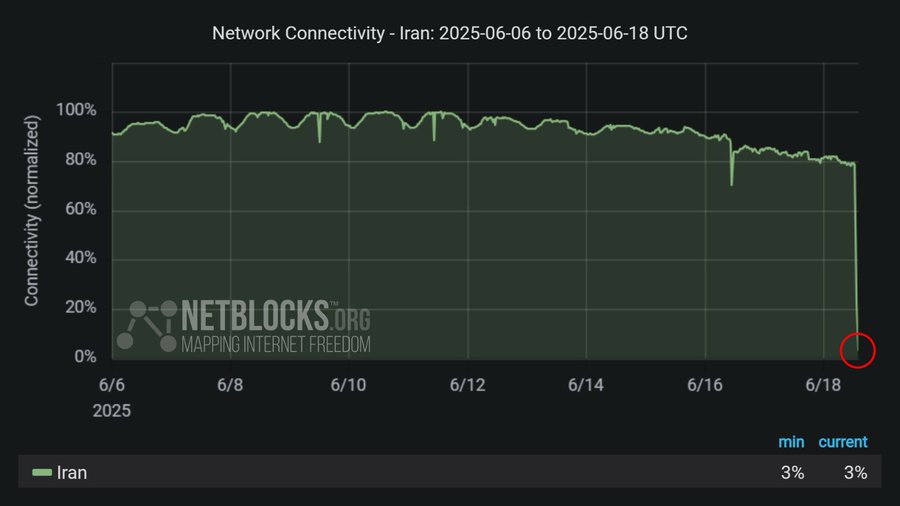
Security Lockdowns in Prisons
According to reliable reports, Evin Prison in Tehran, especially Ward 8—which houses many political prisoners—has been placed under strict lockdown. All phone communications have been cut, outdoor access has been suspended, and special units have surrounded the prison facility. Intelligence agents have been deployed in multiple sections, and a heavy, oppressive atmosphere prevails.
Meanwhile, at the Khorramabad Central Prison, local sources report an unprecedented move: the installation of machine gun posts on the prison rooftop—an extreme military measure suggesting preparations for violent suppression.
Political prisoner Bijan Bahrami was recently transferred under urgent circumstances and is now hospitalized, with officials claiming an attempted suicide—an account that independent sources have rejected. The situation raises urgent questions about the treatment and safety of detainees across the country.
The 1988 Massacre Must Not Be Repeated
These warning signs echo a dark chapter in Iran’s modern history. In the summer of 1988, during the final phase of the Iran-Iraq war, thousands of political prisoners were secretly executed in prisons across Iran. Phone lines were cut. Access to the outside world was blocked. Within days, the prisoners had vanished—many buried in mass graves that remain unacknowledged to this day.
Today, with communication cut and security forces mobilized, we are witnessing similar patterns. The fear that the past may repeat itself is real—and terrifying.
Political Prisoners at Risk in Evin Prison
Among those currently at risk are many women political prisoners held in the women’s ward of Evin Prison. Many are well-known activists in the fields of women’s rights, human rights, environmental justice, and labor movements.
Figures such as Varisheh Rezaei, Golrokh Iraee, Maryam Akbari Monfared, and Pakhshan Nouri are among these brave women who have stood against tyranny for years. Now, they face extreme uncertainty, cut off from their families, lawyers, and the outside world. They are defenseless—and they have no place to seek refuge.
Our Demands
At Verein Welle, given the urgent and exceptional nature of the current crisis, we call for the following:
- Immediate intervention by the UN Special Rapporteur on Human Rights in Iran
- International monitoring of prison conditions across Iran
- Legal and media pressure to stop the transfers and protect the lives of political prisoners
- Cooperation among human rights organizations to document current violations
- An urgent appeal to international courts in anticipation of possible crimes against humanity
What Can Be Done: Awareness, Pressure, and Solidarity
Right now, the most powerful tool we have is raising awareness.
Every post, every statement, every news article that breaks the silence can save lives.
We call on all people of conscience:
🔹 Be a voice for political prisoners
🔹 Share this project widely
🔹 Join international campaigns
🔹 Support our work through donations, enabling us to document, publish, and advocate effectively.
